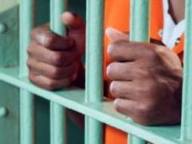The Nsawam Prison owes the Nsawam Government Hospital GHC73,000, being cost of medical services offered to inmates of the Prison since 2009.
As a result, the hospital since last year had stopped offering medical services to the inmates on credit basis and making them to pay for all medical expenses, except for folders.
Mr Thomas Wuni, Finance Director of the hospital, made this known at the annual review meeting of the hospital on Thursday.
He said in addition to the indebtedness, the National Health Insurance Authority (NHIA) also owed the hospital millions of Ghana cedis.
Mr Wuni disclosed that the mortuary contributed about 50 per cent of all revenue generated by the hospital and so had depended on that to run the hospital efficiently in the face of the huge debts owed it by the Prisons and the NHIA.
He however urged the staff to be conscious of their work to rake in more revenue to run the hospital effectively and also be vigilant to prevent mismanagement of the funds generated.
Dr Kofi Ablorh, Medical Superintendent of the hospital, said the management instituted five strategic objectives including the scaling up of maternal, child and reproductive health care services to women and children at all units in the hospital during the year 2012.
He revealed that under that strategic objective, the hospital increased its total deliveries to 4,262 representing 17.1 per cent over the previous year and recorded only one maternal death.
Dr Ablorh said as far as child health was concerned the hospital was able to start a Nicu centre in October 2012, and since then a total of 63 neonates and pre-term babies were resuscitated at the unit with a success rate of 92 per cent.
He said the hospital improved access to its services generally at the Outpatient department and the in-patient levels with increases of seven and three per cent respectively, whiles surgical services also increased by 47 per cent in the year under review.
Dr Ablorh said significantly the average surgeries per doctor in 2012 was 706, representing a 25 per cent rise from 2011 figure of 561 that translated to approximately two surgeries per doctor per day throughout the year.
He said the hospital also strengthened its procurement unit in order to ensure value for money in all procurement transactions and “as a result the hospital never runs short of essential medical supplies, drugs and other logistics throughout the year” he said.
Dr Ablorh indicated that a procurement audit team that visited the hospital from the Public Procurement Authority (PPA) recommended the hospital for strictly adhering to the procurement law.
He therefore thanked members of staff for the efforts put in to ensure that the hospital was able to perform its core functions and objectives and urged them to continue with the zeal this year.
General News of Friday, 1 February 2013
Source: GNA
Nsawam Prison owes Gov't hospital GHC73,000













